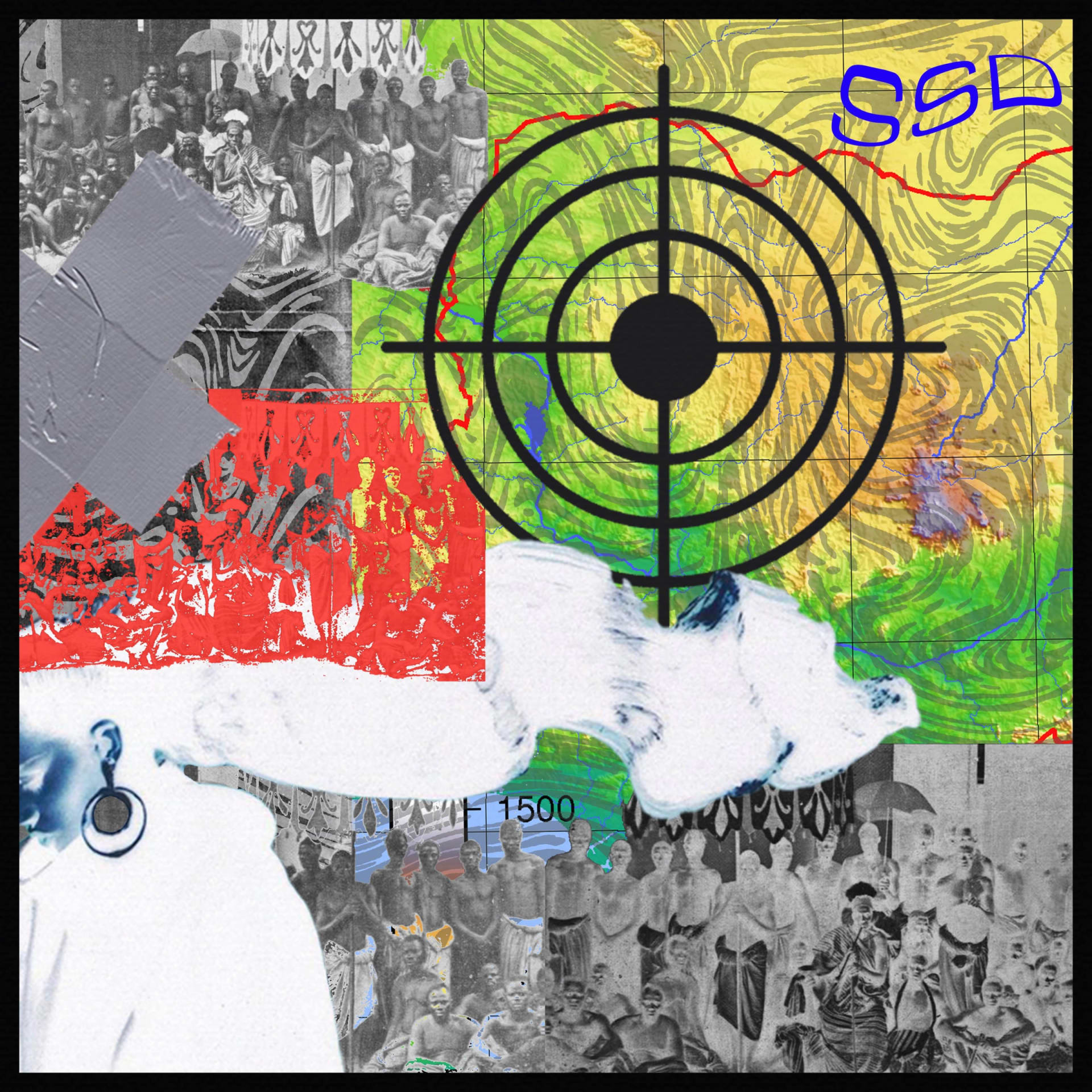

Dance Your Ailments Away With SHE Spells Doom’s “Drums of Affliction”
The Zambian producer’s FWD Transmissions club track unites his sundry African influences and evokes the feeling of “slowly locking into a trance state and escaping pain, worry, and sorrow.”
On his newest track “Drums of Affliction,” Zambian artist SHE Spells Doom (AKA Wamya Tembo) uses music as a “source of healing.” His inspiration comes from Vimbuza, a traditional dance used for spiritual convalescence by the Tumbuka people of Zambia’s eastern region, from where his mother’s side of the family originates. This kinetic ritual, which around the mid-19th century evolved into a means of surviving the tribulations of the country’s British occupation, involves healers and drum players who sing and play songs as therapy for “people who are sick or possessed by evil spirits by putting them in a trance state,” the producer and DJ explains. “They essentially dance their ailments away.”
-
SHE Spells Doom - Drums of Affliction

Hailing from the capital city of Lusaka, Tembo also finds his sonic touchstones in the African sounds he has been exposed to throughout his life. From listening to kwaito and soukous music since childhood to recently discovering the stimulating propulsions of gqom and amapiano last year, the artist decided to cull the sundry stylistic influences into the intense rhythms within “Drums of Affliction.” For the project, he joins forces with Igbo-American visual artist Jessica Udeh. His functional club track is driven by the feeling of “slowly locking into a trance state and escaping pain, worry, and sorrow,” meanwhile Udeh, who is also a creative director and sound artist, superimposes traditional Igbo textiles and other digitally sourced images to create a piece in line with her signature collaging style, focusing on expressing her personal thoughts through the fusion of West African and American imagery.

In spite of their strictly remote collaboration, each artists’ creative approach to the project pays deference to the mediums of the other. Where Tembo usually tries to “pick sounds that capture the feeling of an original world,” aiming to build his own atmospheric environment, he took his methodology one step further knowing he would be working with Udeh, by producing a piece “brimming with emotion—hopefully tangible enough to evoke some imagery,” while also attending to his love for ethereal sounds blended with clubby percussion. Udeh, who says working with SHE Spells Doom felt like “a full circle moment” given her existing support for his music, took the haunting aura present in “Drums of Affliction” as a signal of war. Her collage magnifies this sense of violence through layers of blood red relief prints, alongside ghost-like silhouettes and point targets indicative of soldier preparation. Simultaneously, Udeh hoped to invite people “into a never-ending exploration of self that highlights parts of the Black existence that most of us are not conscious of,” by looking to the history of the western African kingdom of Dahomey (located within present-day southern Benin.) Scattered throughout her cover are 19th century black and white photographs and negatives of the monarchical family from the city of Allada, which was conquered by the Dahomey regime in 1724.

Tembo and Udeh draw from their own personal connections with African culture to inform their central mechanisms, resulting in thematic dissimilarities in the meaning behind “Drums of Affliction” and its accompanying artwork. But by weaving together narratives of Tumbuka healing rituals and Dahomey royalty on their joint FWD Transmissions project, both artists strive to uphold a dignified and enduring Black history.

Michelle is a UK-based DJ and writer, specializing in club music. She presents a monthly radio show on NTS Radio and writes for Truants, Insert, and Resident Advisor. Follow her on Twitter.
“Drums of Affliction” is mastered by DJ Paypal.
Artwork by Jessica Udeh, with additional visual direction by Sofia Apunnikova and Ekaterina Kachavina.
Published December 04, 2020. Words by Michelle Ngz.












Follow @electronicbeats